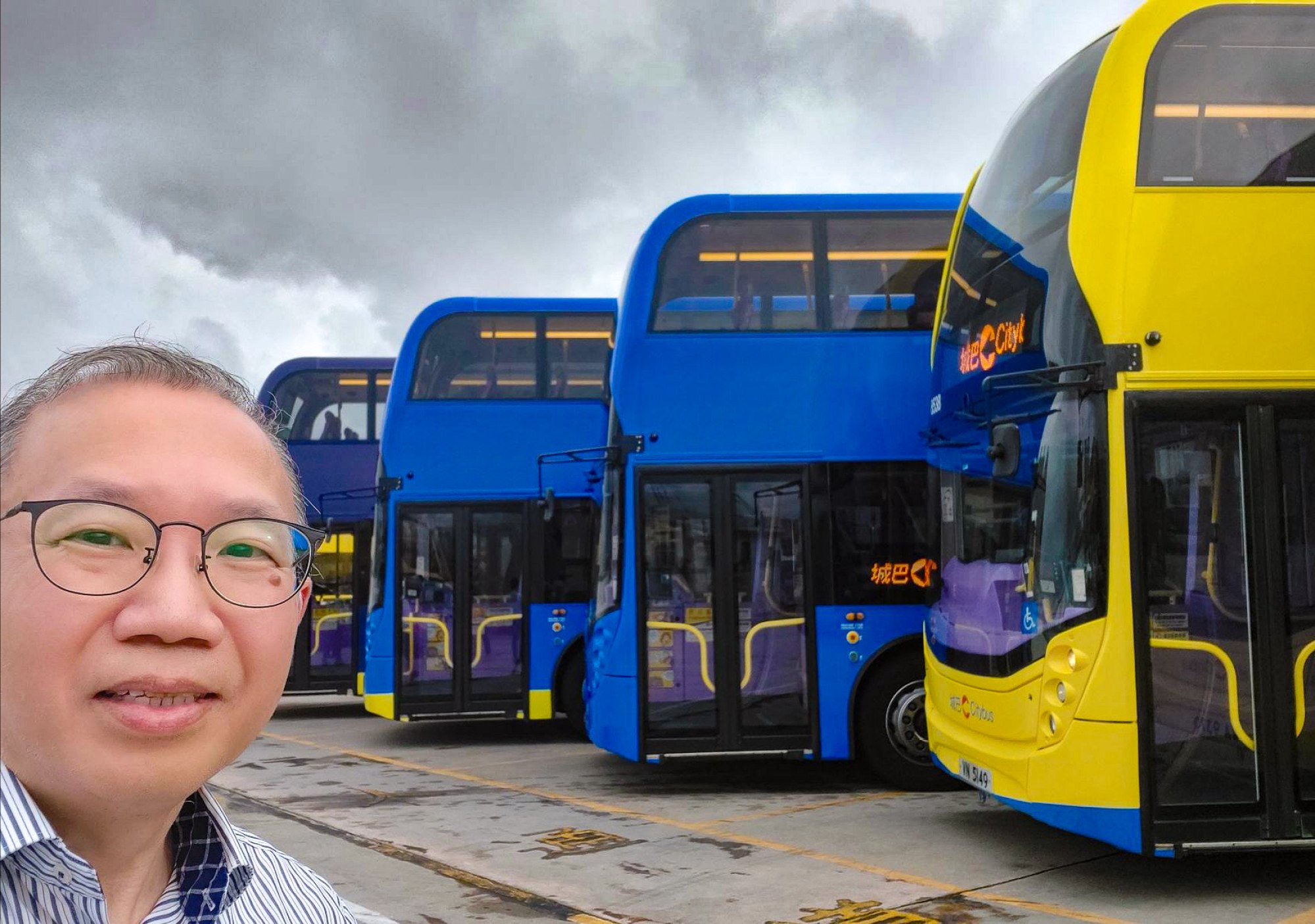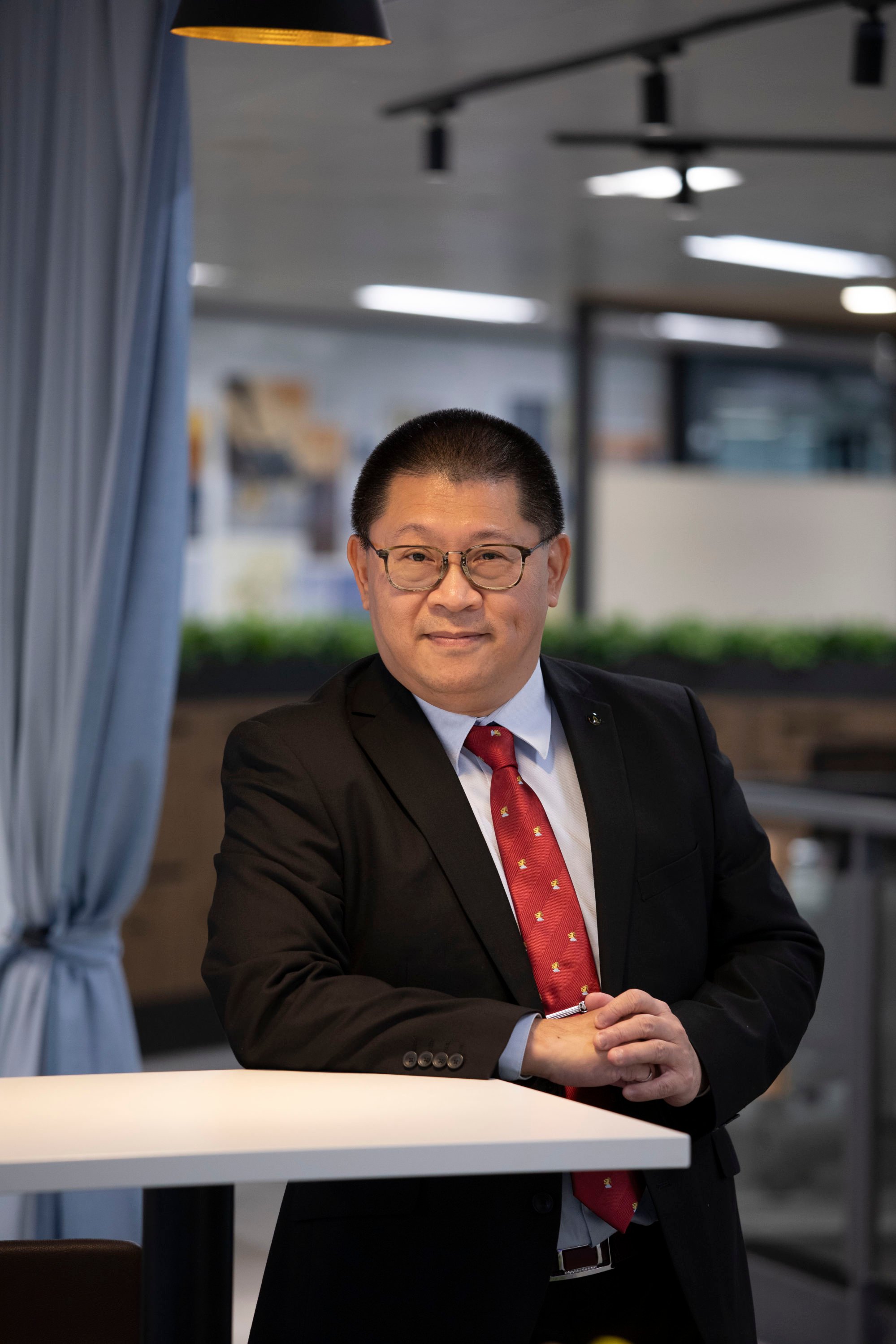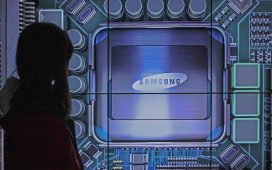Some of these projects have support from the government’s HK$400 million (US$51.23 million) green tech fund and HK$200 million new energy transport fund. But it remains to be seen whether Hong Kong’s plan to “advance with prudence”, in the words of one official, will pay off in time for hydrogen to deliver the emissions reductions the city needs to achieve its net-zero goals. Certainly, many involved in the nascent sector would like the government to press harder.
The fuel for Citybus’s lone hydrogen-powered vehicle is made at a facility in Tseung Kwan O Industrial Estate by Linde HKO, a unit of the German company that is one of the world’s top industrial gas makers. After using electricity to split water into hydrogen and oxygen, the company transports the hydrogen to the refuelling facility using a tube trailer with the capacity to refuel the bus 10 times.
Citybus believes hydrogen buses can be a one-to-one replacement for diesel models. The same cannot be said for current battery-electric buses, which the company is also trying out, said Kenny So Kwok-kin, the operator’s general manager of engineering.
“The newest battery-powered double-decker buses have a designed driving range of 300km, but high energy demand from air conditioning in the summer and slope-climbing in certain routes means they often can only run 200km, and they require 2.5 to three hours of mid-day charging,” So said during a hot June afternoon at the West Kowloon depot, one of 11 Citybus runs in Hong Kong.
Citybus needs to make a big choice by 2027, when it will stop buying diesel buses to stay on track with a pledge to transform its entire fleet – currently more than 1,700 buses – to zero emissions by 2045, five years ahead of Hong Kong’s net-zero deadline.
To help make its decision, next year Citybus will roll out a second-phase trial, which will increase the hydrogen bus fleet to five, and pit it against fleets of five battery-powered buses and five diesel ones plying the same routes.
“We must do the field tests to compare their performance and operating models to prove the concepts we have in mind, so that come 2027 we will have the data to make decisions on the number and types of new-energy buses to buy, besides the type, scale and locations of refuelling infrastructure we will need,” So said.
“We are looking at both the battery and hydrogen options and they will likely be complementary. Hydrogen buses currently have an edge over battery models on mileage, refuelling time and passenger capacity, while battery ones may be more cost effective on routes with lower passenger loads and running on flat roads.”
Citybus plans to build a larger hydrogen refuelling station at its Chai Wan bus depot, to be supplied by Hong Kong and China Gas (Towngas), So said.

Towngas last year signed a preliminary agreement to install and maintain a facility at a Citybus depot to extract hydrogen from the gas in its existing transmission network – the same gas that fuels kitchen stoves in millions of flats across the city. The facility would be capable of drawing half a tonne of hydrogen per day, sufficient to operate 10 to 12 hydrogen buses.
In the longer term, the city will need to import green hydrogen, produced by using renewable energy to split water into hydrogen and oxygen, or its derivatives, to meet its decarbonisation needs. Combustion of hydrogen with oxygen is clean, producing only electricity, heat and water.
Citybus and Towngas are among a group of companies dipping their toes in Hong Kong’s emerging hydrogen economy, which is based on the widely held belief that the gas will play a substantial role in reaching global climate goals, despite current fuzziness around the economics.
“Hydrogen as a fuel is quite expensive, compared to diesel,” said Cedric Chung, Linde HKO general manager. “Engineers are working to see how we can lower the cost.” The public also needs to be taught that hydrogen is as safe as any other fuel as a result of improved safety standards, he added.
Another of the 14 pilot programmes the government has assented to is a trial by Epro Advance Technology involving retired solar panels that would otherwise be destined for landfills. The company uses silicon in the panels to make a patented material called Si+, which will be used to produce hydrogen and generate power at a public housing construction site in Tung Chung. The project will deploy the world’s first silicon-fuelled hydrogen generator, said the Hung Hom-based firm’s co-founder and CEO Albert Lau.
For indigenous hydrogen technology to thrive, the government must employ financial carrots and sticks, Lau said.
“Without subsidies and a carbon price, hydrogen as a clean energy source will have to compare head-to-head with traditional fossil fuels, whose supply chain infrastructure is well established and whose investment costs are already mostly depreciated in companies’ books,” he said.
Financial help is key to growing a domestic hydrogen industry, agreed So of Citybus, citing mainland China’s performance-based subsidy system for hydrogen supply-chain start-ups and refuelling stations.
“Mainland China started developing hydrogen public transport around seven years ago and now boasts the world’s largest number of hydrogen buses and refuelling stations,” he said. “In Hong Kong, we also need government support on policy, regulations, hydrogen import infrastructure and, most importantly, financial assistance during early-stage market development.”
The government plans to table legislative changes next year to provide a legal basis for regulating hydrogen use as fuel, which would allow more pilot projects across multiple industries, Tse said. It will also establish safety and technical standards through the supply chain.
“Additionally, the government’s proposed regional cooperation with the mainland on hydrogen energy policy could pave the way for Hong Kong and Guangdong to jointly plan and co-develop green hydrogen-related infrastructure,” she said.
The Hong Kong Hydrogen Alliance, a newly formed non-profit organisation, said the city would benefit from the establishment of a hydrogen office within the government, which could develop and follow up on action plans, build a database of technologies, projects and best practices, and coordinate cooperation.

It also hopes the government will support a market study of the potential supply and demand of hydrogen for power generation and road transport, as well as its derivatives, which include green ammonia and methanol for shipping and synthetic green fuels for aviation. Such a study could be conducted by academia or consulting firms.
“Sizing the market potential – at least technically – is imperative for the stakeholders to make informed decisions on business development and strategic planning,” said Edmond Fong Wai-man, chairman of the Hong Kong Hydrogen Alliance and general manager of the transmission operation and aviation fuel facility business at Towngas.
The alliance formed early this year with members including Towngas, fuel distributor Sinopec Hong Kong, infrastructure consultancy Arup, Linde HKO, waste-to-clean energy projects developer EnerWaste Asia-Pacific, certification service provider TUV Rheinland, and testing service provider CMA Testing.
A spokeswoman at the Environment and Ecology Bureau said there should be no need to set up another office to support hydrogen development in Hong Kong, because the government has already set up an inter-departmental working group, whose roles and functions will expand.
The group, which comprises members from over 10 government bureaus and departments, will take forward the measures set out in the hydrogen development blueprint, including approving trial projects. The bureau will continue to provide secretariat support to the group, she added.
“If the government can collaborate with stakeholders to facilitate infrastructure sharing, it could mean a difference between eight hours and 24 hours of daily usable capacity of refueling facilities,” he said. “We should consider alternative possibilities and think out of the box.”
Taking a multi-sector approach to logistics infrastructure – including possible public or shared ownership – can also greatly enhance efficiencies for companies across the hydrogen economy, Citybus managing director Richard Hall told a Business Environment Council conference last month.
“Instead of having multiple sets of infrastructure for each industry, there are opportunities where we can share, and provide benefits to our businesses and the wider Hong Kong economy,” he said.








